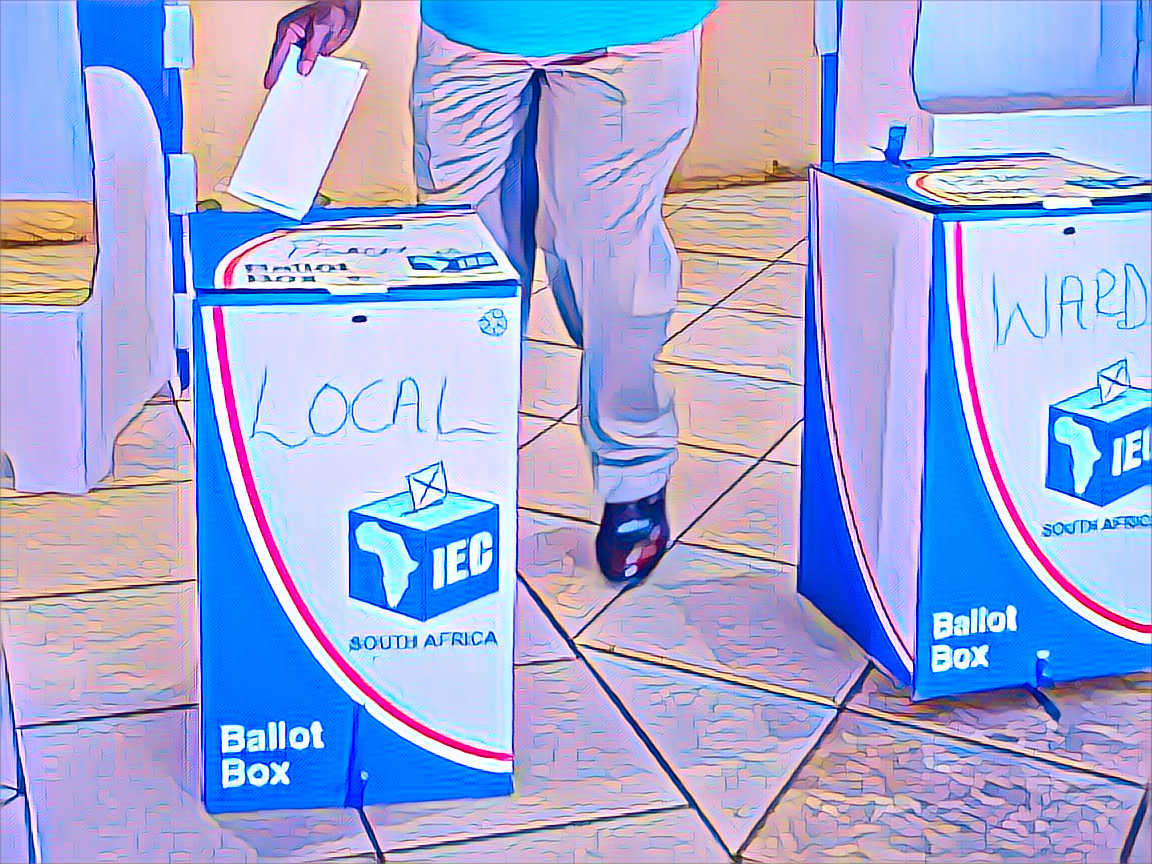As South Africa gears up for Wednesday’s elections, the political landscape is more contentious than ever. Voters are divided, with some committed to the ruling African National Congress (ANC) while others seek change through opposition parties. Analysts say this election could be one of the closest since the end of apartheid.
Divided Voter Sentiments
In Johannesburg, Thabo Molobi, a staunch ANC supporter, expressed his desire for continuity. “Thirty years of democracy is probably 30 years of policy. We need another 30 years of implementing those policies and seeing them come to fruition,” Molobi stated.
In contrast, Karam Ezzideen is disillusioned with the ANC’s unfulfilled promises. He plans to vote for the Democratic Alliance (DA), which he believes represents change and a strategic vision for the country. “Enough is enough,” Ezzideen declared, highlighting a common sentiment among voters tired of the ANC’s rule.
Political analysts suggest that parties like the DA, the Inkatha Freedom Party (IFP), and others have strong support bases within specific ethnic groups and regions. Many opposition candidates accuse the ANC of corruption and a lack of strategic vision, arguing that the country is in crisis and needs rescue.
ANC leader Cyril Ramaphosa, seeking a second term, defended his administration’s record in a campaign video, emphasizing progress in meeting the basic needs of South Africans. “We are putting South Africa to work by investing in our people to ensure that no one is left behind,” Ramaphosa said. He reiterated these points in a televised address, emphasizing efforts to improve the country’s economic prospects despite setbacks from global events.
Analysts Predict a Tight Race
Daryl Glaser, an associate professor at the University of Witwatersrand, predicts a close race. “All the opinion polls suggest there’s a very serious chance the ANC is going to fall below 50% of the vote and that it’s going to be forced into some kind of coalition,” Glaser noted. This scenario could be exciting for those who believe the ANC has mismanaged the country but concerning given South Africa’s poor track record with coalitions at the local level.
Glaser, along with other analysts, pointed out that power outages, corruption allegations, and internal disunity within the ANC have bolstered the opposition. The Economic Freedom Fighters (EFF), led by former ANC youth leader Julius Malema, and the newly formed party supported by former president Jacob Zuma are among the significant challengers.
Zuma’s party, uMkhonto we Sizwe (MK), has been an unexpected entrant in the political scene. “Zuma’s party arrived late in the campaign but has significantly impacted the dynamics. MK is a threat to both the EFF and the ANC, capturing the discontented voters,” Glaser said.
Nine days before the election, South Africa’s top court ruled that Zuma was ineligible to run for parliament due to a past criminal conviction. Despite this setback, Zuma assured supporters at a rally that his party would address joblessness and other pressing issues if it won.
Key Issues and Voter Concerns
Unemployment remains a critical issue, with South Africa’s jobless rate at 32%, according to the World Bank. Voter Kathryn Defenn highlighted unemployment as the country’s biggest challenge. Another voter, Oupa Muhadi, plans to vote for Action SA, emphasizing the party’s stance on crime and job creation.
Kurmola Manilall, still undecided, underscored poverty, joblessness, and infrastructure maintenance as the most pressing issues facing the country.
Thabo Masemola, an official from the Independent Electoral Commission, noted that nearly half of South Africa’s 62 million people have registered to vote. “We have the highest voters’ roll since it was established in 1999, currently at 27.7 million. All relevant materials are in place,” Masemola said. The IEC has accredited 160 organizations to observe the election, ensuring transparency.
South Africans abroad have already cast their votes in 111 missions worldwide. As the country braces for one of its most competitive elections, the outcome could reshape its political landscape.
In this critical election, the future of South Africa’s governance hangs in the balance. Will the ANC maintain its hold on power, or will a coalition government emerge? The results will undoubtedly impact the nation’s direction and policy implementation for years to come.
Observers are keenly watching the developments, with many expecting significant changes based on the election’s outcome. The opposition’s growing strength highlights a shift in voter sentiment, driven by frustration over persistent issues like corruption, unemployment, and economic inequality.
As South Africans head to the polls, the nation waits in anticipation. This election could mark a turning point, potentially ending decades of ANC dominance. The implications of a coalition government, if the ANC fails to secure a majority, could lead to a new era in South African politics.
Source: New Zimbabwe


